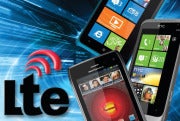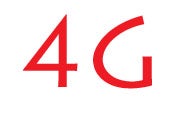
An advocacy group is calling for clarity on the term “4G,” which has long been abused to the point of meaninglessness by wireless carriers.
Consumer Watchdog says carriers have marketed 4G in ways that are “deceptive and confusing,” and wants the Federal Communications Commission to require disclosure of actual data speeds. Specifically, the group wants carriers to disclose national and local average data speeds, both in advertisements and at the point of sale.
“When it comes to advertising data speed, the cellphone marketplace is like the Wild West,” Harvey Rosenfield, founder of Consumer Watchdog, said in a statement. “We need the FCC to step up to its role of sheriff and set standards so people can comparison shop without being ripped off and then locked into a two-year contract.”
The “Wild West” description is accurate. Technically, 4G was only supposed to apply to LTE-Advanced and WiMax 2, two emerging technologies that are not yet commercially available in the United States. But in December 2010, the International Telecommunication Union relaxed its definition to include LTE, WiMax and HSPA+, all of which are in use today.

The International Telecommunication Union eventually redefined LTE-Advanced and WiMax 2 as “True 4G” this year, but it's already too late. All wireless carriers advertise 4G regardless of what standard they're using, and they generally avoid talking about data speeds in concrete terms. As a result, consumers don't get a sense of which network is the fastest without doing some digging.
Consumer Watchdog notes that AT&T markets the iPhone 4S as a 4G phone, even though it can only connect to AT&T's HSPA+ network, rather than its faster 4G LTE network. The iPhone 4S network icon originally showed a 3G connection, but after a software update in March, the icon changed to show a 4G connection despite no change in data speeds.
It's unclear why Consumer Watchdog is pushing back against deceptive 4G marketing now. Carriers have been abusing the term for two years, and at this point they're all trying to roll out 4G LTE networks anyway. Disclosure of data speeds is still welcome, but the worst damage to consumer education about 4G is already done.

No comments:
Post a Comment